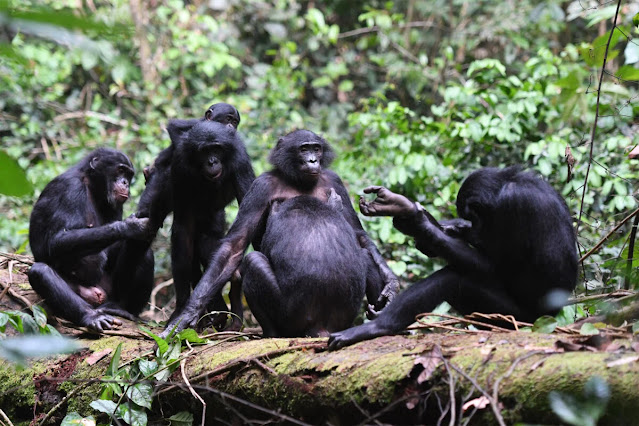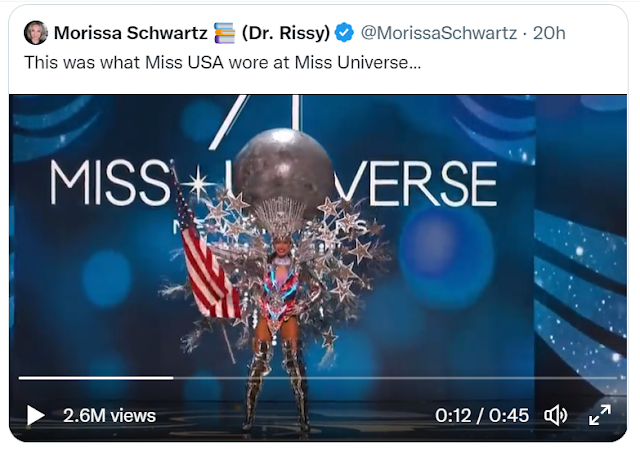This is a guest post (first ever) by my dear friend, a brilliant physicist, Prof. Michael Marder.
When I went as a prospective graduate student to Santa Barbara the person who became my advisor told me he was studying how snowflakes grow. They build layer by layer, with small bumps emerging into fingers that sprout fingers in turn. The shape of the snowflake is comprehensible at any time in relation to its shape a moment before -- and only in relation to its shape a moment before. The environment matters too and it influences details of the shapes, which is why no two snowflakes are identical. It is an odd mixture of idiosyncrasy and inevitability.
This seems to me a useful metaphor for what we call news and opinion. When I pick up the news in the morning, which I do every day and not just in the morning, it appears at first to be, well, new. Here are all the new things that just happened. And here is how to interpret them.
 |
| By Alexey Kljatov - Own work, CC BY-SA 4.0, https://commons.wikimedia.org/w/index.php?curid=39993014 |
But while the particular events of each day are new they are almost always completely familiar. They fit into narratives that have been developing for days, months, or years. The snowflake puts out some new fingers but they fit right atop old ones.
The US right now is blessed with two dominant snowflakes that have grown in somewhat different locations from each other while they also have much in common. We could call these the New York Times and Wall Street Journal flakes. The news stories are remarkably similar but the opinion pieces protrude in different directions. On their dueling opinion pages on Jan 12, 2023 we learn (NYT) why Republicans hate Medicare and how Ron DeSantis is ruining Florida by making it too expensive for all but the rich. At the same time (WSJ) we learn that the Federal Trade Commission is making the most audacious power grab in its history through a ban on noncompete clauses and that the Federal Reserve has too few regrets about its incompetent handling of inflation. The narratives are familiar. They are extensions of stories from yesterday and lay the base for stories of tomorrow.
The conversation of educated people during lunch is repeating of snippets from the morning’s papers. Everyone at the table must belong to the edge of the same snowflake or the conversation will descend into nonsense or conflict.
What then can we make of someone whose opinions slowly develop over time through expertise in topics that is not dependent on the daily news feed? Such a person may come out with combinations of statements and opinions that do not mesh with the protuberances of the dominant snowflakes. These statements will not so much be unbelievable as incomprehensible.
This brings me, Tad, back to your blog. The most curious part is not what you say but who you are. It is comprehensible, although not anymore particularly striking, when an oil company researcher blows the whistle and reveals that the companies have known they are destroying the planet and covered it up. But what can we make of someone who has spent a life in both industry and academia studying oil deeply and thinking about the consequences of its use for humanity and the planet, yet does not renounce and denounce the academic-industrial oil complex and is not rejected or destroyed by it? This does not make sense. If the big snowflakes were to try to incorporate your ideas they would need not just to bend the ideas to fit the contours of what they can express, but to alter a life trajectory. And this is why your ideas will not attach to the edges of their snowflakes, but continue to grow on one that is very much your own.
P.S. 01/13/2023. By T.W. Patzek.
Yes, loneliness has been my second name. I was isolated and ignored at UC Berkeley, then at UT Austin, and now at KAUST. In each of these universities, I had a brilliant individual career and was promoted accordingly. In the year 2022, at KAUST, I published 28 not so small papers with my brilliant research group. Yet, practically, I have not existed much as a public representative of the universities in the areas of overpopulation, climate change, ecosphere collapse and energy transitions, my key research, teaching and writing interests over the last 20 years. This blog has quietly exceeded 800,000 reads. Enter the collective schizophrenia of academia and society at large. People are scared of me and embarrassed by what I say, but deep inside they may be rooting for me.
All new ideas are rejected at first by the scientific community, which also grows its favorite snowflakes. The key is not who knew what when, but what are we going to do with this knowledge. Here the human genetics tells me, nothing or worse. Our genetic capacity for self-delusion and self-destruction usually wins with our rational brain. The 37 failed COPs that have been trying to grow a different incongruent snowflake, like me, and the war in Ukraine are good examples. The commercial techno-hopium journals, Science and Nature, are other examples. The prattling destructive Bonobos we are.
 |
| Humans are 99.6% genetically identical with Bonobos. In this sense we are the third species of chimpanzees and our genetic makeup defines what we are. Who we are is masked by the Broca and Wernicke regions of our brains that have generated the shallow, fragile layer of culture. Many claim that culture (read religion) separates us from animals. It does not. This religious notion of human moral superiority over animals is unsupportable by genetic science and leads to a deep schism among people. Image source: [the traditionally anthropocentric] Harvard Gazette. |
In summary, we have found our arch enemy. It is us. Here is what Michael just wrote to me: "I had another thought, which is that an essential tool of a snowflake is to define people’s identities by their enemies, and this leads to a worldview where my problems are because they are against us. But you challenge with the view that our main enemy is all of us and this is profoundly uncomfortable."

"I wish I could be a pretty bonobo that channeled sexual desires of millions of men", careful what you wish for! Sounds like hell.
ReplyDeleteI meant this remark as a joke, dear Koji. My point was that unless you channel the genetically-driven desires of human masses, you don't stand a chance of communicating with them. Our rational brain never dominates the genetic drivers of our behavior. Sexual drive to procreate is the dominant program that drives our brains. We simply must see the alleles (mixed genes) in our offspring to feel good. I revisited this feeling three days ago, when my grandchildren twins were born, and I held in my hands these two helpless, innocent and powerful bundles of my genes mixed with the genes of my wife, daughter and her husband. The immediate visceral, preprogrammed connection kicked in instantaneously.
ReplyDeleteAt this point you must be pretty sorry that you did not make an informed.decision and took them covid poison inoculations . Do yourself a favour and remove your post of the "stupid and whatnot" and apologize ! Maybe the lord have mercy on your soul
ReplyDeleteYez
ReplyDeleteAscent of the Angry and Stupid
ReplyDeleteVery good article . Thanks for sharing.
ReplyDeleteSnowflake Training
Snowflake Training in Hyderabad
Snowflake Online Training
Snowflake Online Training Hyderabad
Snowflake Training Online
Snowflake Training in Ameerpet
Snowflake Training Institute in Hyderabad
"Fantastic post! It’s not often that you come across such an informative and engaging read. You’ve definitely earned a new follower!"
ReplyDeleteBirthday Box